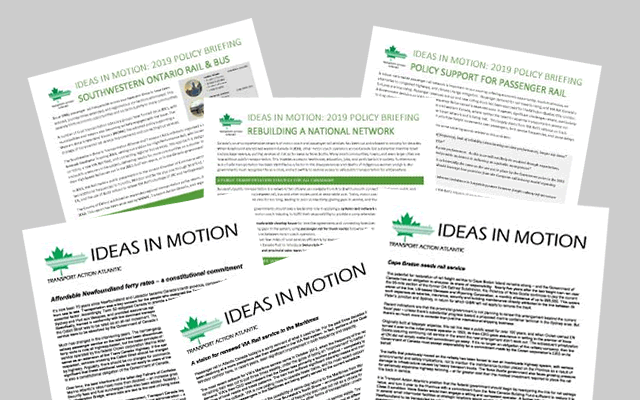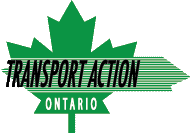
“Ideas in Motion” 2019 Policy Briefings for Federal Election
By Transport Action Ontario | Intercity Rail and Bus , Latest News , Northern Ontario , Press Releases and Open Letters , Southwestern Ontario
The Transport Action family, under the leadership of the national organization, Transport Action Canada, has issued several one-page policy briefings on critical transportation issues. These have been delivered to all federal parties.
Several of these are very relevant to transportation in Ontario. These are
- Policy Support for Passenger Rail
- Rebuilding a National Network (pertains to motor coach network)
- Southwestern Ontario Rail and Bus
The briefings can be viewed here: https://www.transportaction.ca/documents/policy-briefings/



